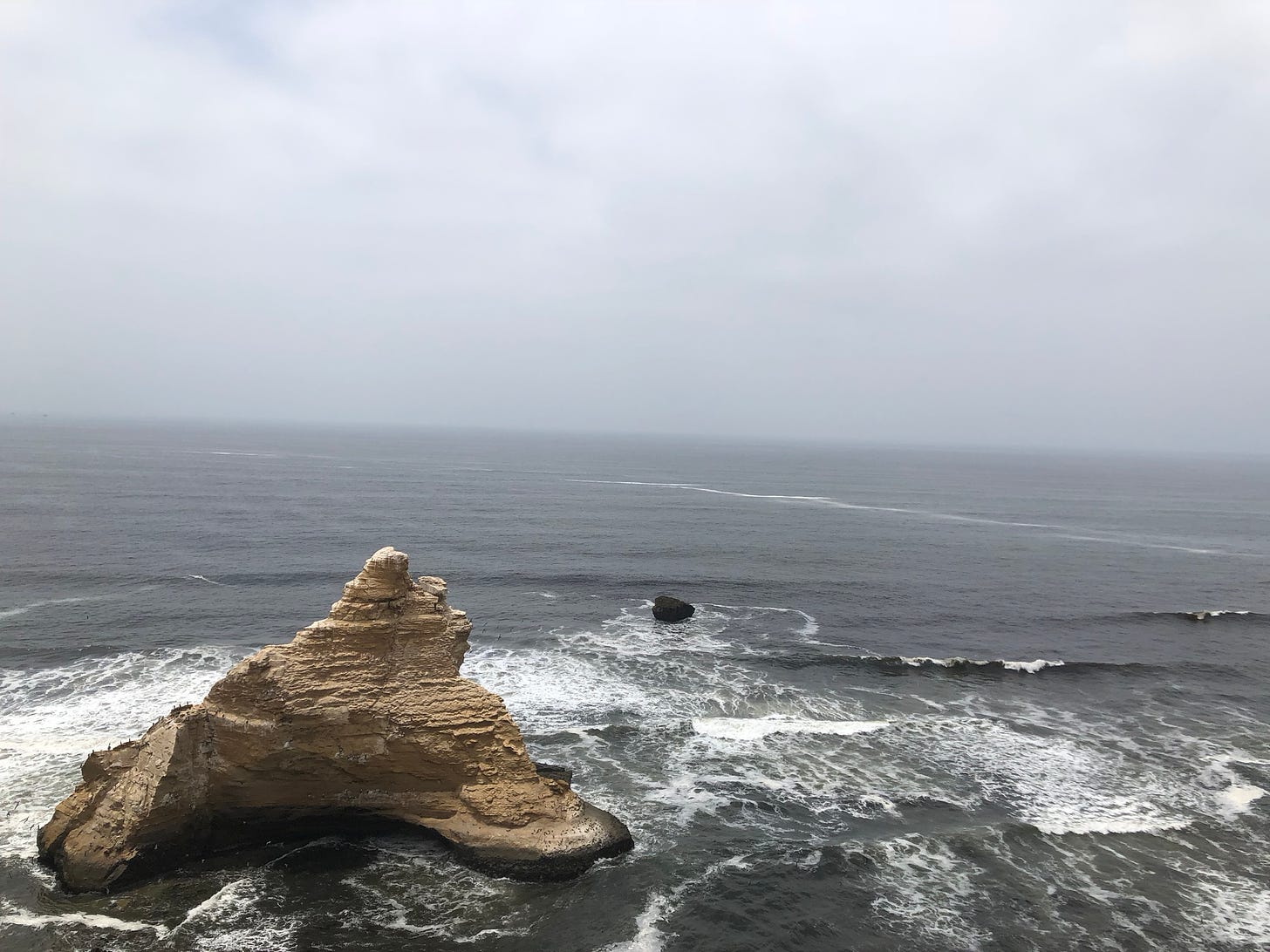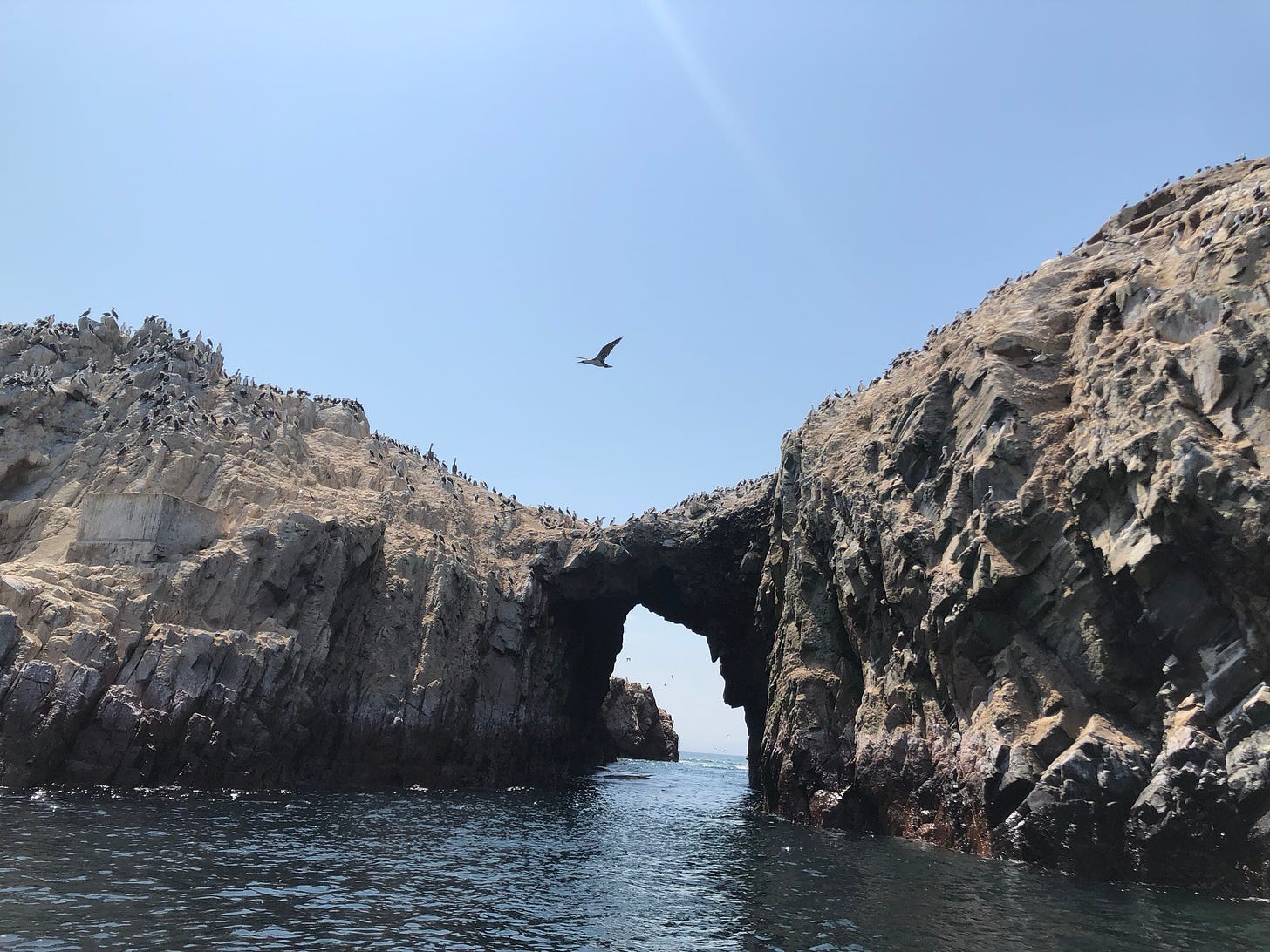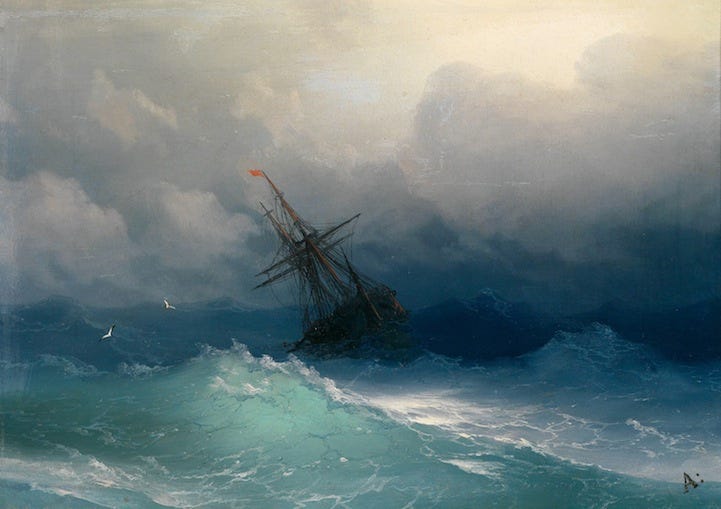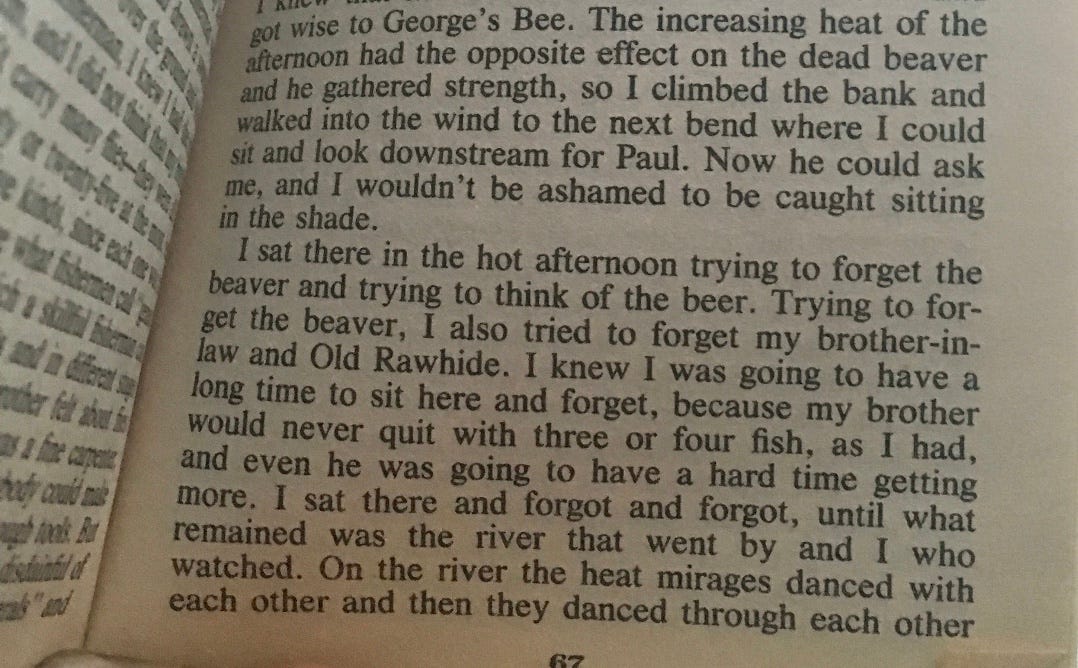Tabs Open #35: Time Isn't Kind or Unkind You Like To Say

There’s a little anecdote that I find myself leaning on from time to time when the writing just isn’t working and I’ve been sitting for a half-hour in front of a blank page wondering if I’ll ever have anything to say again.
Sam Beam, better known as Iron And Wine, shares that anecdote here. It’s about his song “Tree By The River” and how long it took him to get it right. He starts the story just before the song but clarifies a few things once he’s done playing it:
Ten years! Ten years circling back to the same piece of music again and again because you know the right version of the song is in there if you keep chipping away at it and reshaping it and massaging it. For my money the time spent was worth it; this little three minute piece is one of my favorite bits of music of all time. (The album version actually sounds a little overproduced to me and loses some of the raw longing that this one has.)
“Courage” is perhaps not the right word for an artist working hard at his craft. But I think it does demonstrate an admirable quality, a sticktoitiveness that’s exceedingly rare. It is far, far easier to run from difficult pursuits, especially if you have no real belief that they will ever go further than pet projects. (This is a daily struggle for me.) In this vein I find myself thinking about the story of Jonah and the Whale, particularly as it’s told by Father Mapple in Moby-Dick:
With this sin of disobedience in him, Jonah still further flouts at God, by seeking to flee from Him. He thinks that a ship made by men will carry him into countries where God does not reign, but only the captains of this earth. He skulks about the wharves of Joppa, and seeks a ship that’s bound for Tarshish...See ye not then, shipmates, that Jonah sought to flee world-wide from God? Miserable man! Oh! most contemptible and worthy of all scorn; with slouched hat and guilty eye, skulking from his God; prowling among the shipping like a vile burglar hastening to cross the seas. So disordered, self-condemning is his look, that had there been policemen in those days, Jonah, on the mere suspicion of something wrong, had been arrested ere he touched a deck.
I return to Father Mapple because if inspiration doesn’t strike, the fear of ever being described with such thorough contempt for shirking my duties can get the job done.

Part of me wonders if some of this struggle to write stems from an inability to remember a whole lot about my life. They say to write what you know—sometimes I have to check in with myself to see if I really know anything at all. Social media and the repository of photos on my phone seem to replace a good chunk of my active, living memory; without stopping to think hard about places and events from my life, my memories of them somehow often have my own face in them, frozen in time.
I have to ask myself: how much of my honeymoon to Peru, less than a year gone, do I actively remember without looking at pictures? Do I really remember those five long months on the Pacific Crest Trail, or have I filtered and condensed them into a tidy album that makes it all look so much prettier than it usually was? My year in the Marshall Islands? My childhood? Do I have it all, or have I replaced and stored it all elsewhere?

The author in 2013, Aur Atoll, Marshall Islands
These are the things that keep me up nights. (Speaking of, I find some of my really solid memories are of nights or of rain—not particularly conducive to picture-taking.)
But the nice part about being kept awake thinking about memory is that at least you get some time to try to recall things as you lie there in the dark. I’ve been off social media for almost a month, and I think my memory is repairing itself a little in the absence of hyper-available stimulation. I can sit there doing nothing and slowly see the textures of the Oregon forests and California mountains come back to me. I can see Machu Picchu rise from its green valley and my feet walking the path to it. I can remember the exact placement of the reading carpet in the 3rd grade classroom and the way the light sometimes seemed to come from beneath the waves in the Marshall Islands.

(Was anyone ever better at capturing that quality of light in water than Ivan Konstantinovich Aivazovsky? No.)
Jia Tolentino, author of the recent hit Trick Mirror, writes about these same themes of healthy brain function and putting your phone away in the New Yorker:
I carry my phone around with me as if it were an oxygen tank. I stare at it while I make breakfast and take out the recycling, ruining what I prize most about working from home—the sense of control, the relative peace.
…During the first few days of my Internet decluttering, I found myself compulsively checking my unchanged in-box and already-read text messages, and scanning the same headlines over and over—attempting, as if bewitched, to see new information there. I took my dog out for longer walks, initially trying to use them for some productive purpose: spying on neighbors, planning my week. Soon I acquiesced to a dull, pleasant blankness. One afternoon, I draped myself on my couch and felt an influx of mental silence that was both disturbing and hallucinatorily pleasurable. I didn’t want to learn how to fix or build anything, or start a book club. I wanted to experience myself as soft and loose and purposeless, three qualities that, in my adulthood, have always seemed economically risky.
I take this two-month break from Twitter and Facebook to end every year, and the first few weeks are always exactly as she describes: never am I a more diligent replier to emails than when I have completely run out of ideas of what to do but still can’t help using my phone. Nearly a month in, I am hitting my groove; it is especially apparent to me when I hang out with friends because I rarely even keep my phone in my pocket these days when I’m over at one of their houses. My hope is that this has a compounding effect: I will make more memories with them, and I will retain those memories because nothing else is stealing my attention when I’m making them.
And of course some types of forgetting are good; we cannot and should not remember everything.
Ironically I took this picture while I was hiking the PCT, that journey I’m so worried my photos are making me forget. I did see and cross and wade through and drink from quite a few rivers while I was out there, so maybe if I get good enough at forgetting other things all that will remain is them and me.
Anyway I wanted to tell you all, in the spirit of the holiday, that I am embarrassingly thankful for each and every one of you who reads this. I started writing the newsletter because I needed to for myself, to impose some discipline on my life and to start doing something with all the ideas that bounce around up in my head. But while I got those things I also got you all in the bargain, and even though I wasn’t expecting that, it has meant the world to me over these last eight months.
Take care and enjoy your holiday,
Chuck




